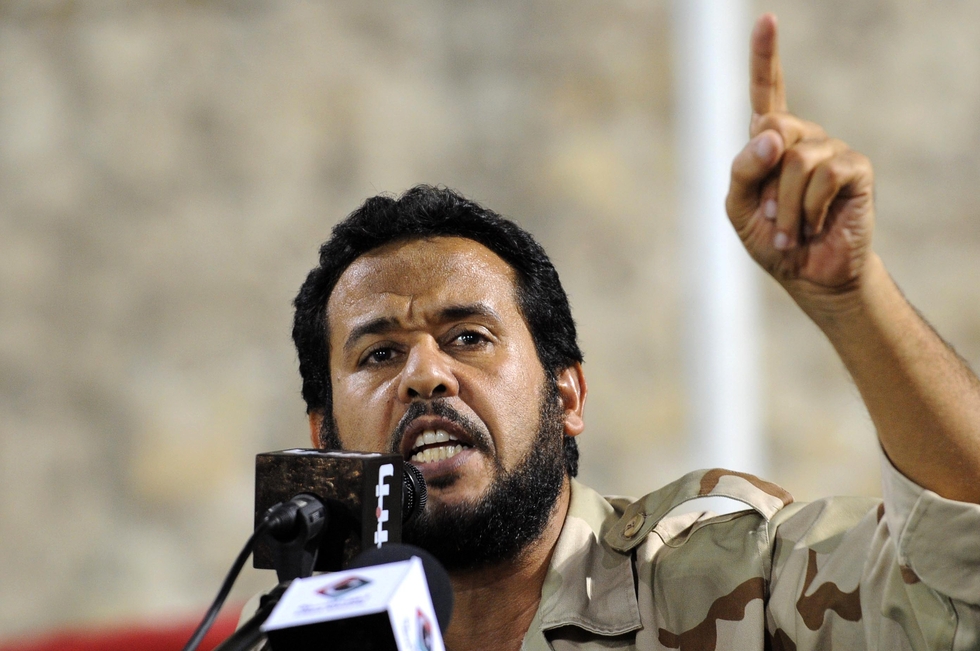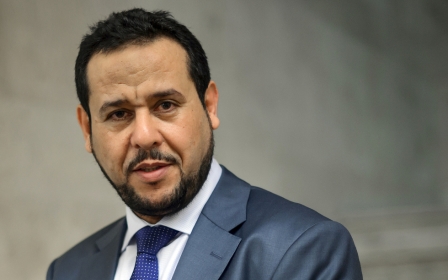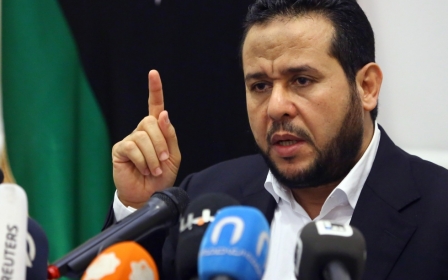No charges to be filed against UK officials over Libya rendition cases

No charges are to be brought following a police investigation into the role British foreign intelligence services played in the kidnapping and illegal rendition of two families to Muammar Gaddafi-ruled Libya, prosecutors said on Thursday.
Libyan political dissident and former militant Abdelhakim Belhaj has long claimed that the Secret Intelligence Service (SIS), commonly known as MI6, played a key role in the “extraordinary rendition” of him and his wife, Fatima, from Thailand to Libya in 2004.
In a statement, the Crown Prosecution Service said there was "insufficient evidence" to press charges against one individual who had been investigated over the claims.
“Following a thorough investigation, the CPS has decided that there is insufficient evidence to charge the suspect with any criminal offence," said Sue Hemmings, the head of the CPS's special crime and counter-terrorism division.
“We made our decision based upon all the available admissible evidence and after weighing up all of the information we have been provided with.”
According to Belhaj, he and his family were trying to travel to Britain in order to claim political asylum. They were, however, forcibly seized in Thailand and transferred to Libyan intelligence in Tripoli.
Lawyers for the victims say the evidence is overwhelming after documents said to describe the UK involvement in the abduction of Belhaj, alongside fellow Libyan dissident Sami al-Saadi and his wife and four young children, were uncovered during the 2011 revolution that led to the overthrow and murder of Gaddafi.
Belhaj was held in prison for six years - where he says he was "very seriously tortured" before being freed in 2010 under a "de-radicalisation" drive championed by Saif al-Islam Gaddafi, the son of the Libyan leader.
On Thursday he told the BBC he was "very disappointed" that no charges would be brought, adding: "If there is political interference with the courts, then it undermines British justice."
His wfe Fatima Boudchar, who was pregnant at the time of her detention and transfer to Libya, spent four months in a Libyan prison, has also spoken out. She told the BBC: "My hands and legs were tied and my eyes were covered. They injected me with something. I didn't know where I was going.
"I was six months' pregnant. I was so scared that I was going to die. "
Middle East Eye columnist Peter Oborne, who interviewed Belhaj after the fall of Gaddafi in 2011, has followed the case in numerous columns, detailing the strong evidence of British collaboration with Libyan authorities.
In November he reported how after the 2011 Libyan revolution, Human Rights Watch discovered correspondence between Gaddafi's head of intelligence, Moussa Koussa, and Mark Allen - then a very senior MI6 official.
In the correspondence, the MI6 officer seems to congratulate his Libyan contact for the "safe arrival" of Belhaj. He writes: "This was the least we could do for you and for Libya to demonstrate the remarkable relationship we have built up over recent years."
Allen, the former head of counter-terrorism at MI6, was questioned by detectives about faxes from London to Tripoli, which were signed “Mark”.
Both Allen and Jack Straw, the UK foreign secretary at the time of the 2004 renditions, have denied all wrongdoing.
Peter Bouckaert, from Human Rights Watch, said: "The UK authorities announced today that they have 'insufficient evidence to charge any MI6 officer for the illegal rendition of Libyan opposition figures to Qaddafi's Libya.
"Well, this fax I found in 2011 in Musa Kusa's offices in Tripoli, from Mark Allen, the head of MI6's Middle East branch, clearly claims MI6 credit for the detention of Abdelhakim Belhaj, who was the Emir of the Libyan Islamic Fighting Group LIFG at the time of his capture.
"He also acknowledges that Belhaj was flown back to Libya by the CIA. Plus the letter has some very juicy bits about arrangements for the trip of Tony Blair to Libya, but I'll let you read it for yourself."
The case is important because it involves the allegation that the UK colluded in torture, but more than a decade after the events, it is still unclear exactly what happened.
The British government has settled similar claims from former detainees at Guantanamo Bay, but a judge-led inquiry into British involvement in rendition was scrapped.
Peter Gibson, the judge commissioned to carry out that inquiry, said there was an urgent need for further investigation into British complicity in rendition and torture and Parliament’s Intelligence and Security Committee (ISC) was tasked with continuing the investigation in December 2013.
However critics say the ISC is dragging its feet and isn’t equipped to get the right answers
Belhaj, a leading member of the opposition to Gaddafi, was abducted by the CIA in Thailand in March 2004, after a tip-off from MI6. Belhaj’s wife later described how he was taped to a stretcher for the 17-hour flight to Libya, where he was detained for six years and tortured.
Later that month Saadi, his wife and four children were arrested, this time in Hong Kong after they travelled there to speak to British diplomats. Saadi was detained in Libya for six years and also alleges he was tortured.
The Guardian also reported that a visit to Libya by former British prime minister Tony Blair, where he held meetings in the desert with Gaddafi, took place as the two men were being renditioned. At the time Blair hailed a new “common cause” with Libya in counter-terrorism initiatives.
Both Saadi and Belhaj claim they were interrogated by British intelligence officers while in Libyan custody, amid claims that information extracted from them was used to detain Libyan dissidents living in the UK.
Saadi and his family later received £2.2m ($3.2m) in damages from the British government, while Belhaj, who is now the leader of the religious conservative Al-Watan party, is reported to be holding out for a formal apology to his wife.
Belhaj had fought against Gaddafi for many years and later commanded the now defunct LIFG, which fought in Afghanistan against Soviet forces in the 1980s. Later the LIFG waged a three-year low-level campaign of militancy mainly based in eastern Libya.
By 1998, the group was crushed. Most of its leaders fled to Afghanistan and joined forces with the Taliban where Belhaj was alleged to have developed "close relationships" with al-Qaeda leaders and Taliban chief Mullah Omar, according to an arrest warrant issued by the Libyan government in 2002.
Libyan politicians have since denied Belhaj had links to al-Qaeda.
New MEE newsletter: Jerusalem Dispatch
Sign up to get the latest insights and analysis on Israel-Palestine, alongside Turkey Unpacked and other MEE newsletters
Middle East Eye delivers independent and unrivalled coverage and analysis of the Middle East, North Africa and beyond. To learn more about republishing this content and the associated fees, please fill out this form. More about MEE can be found here.




